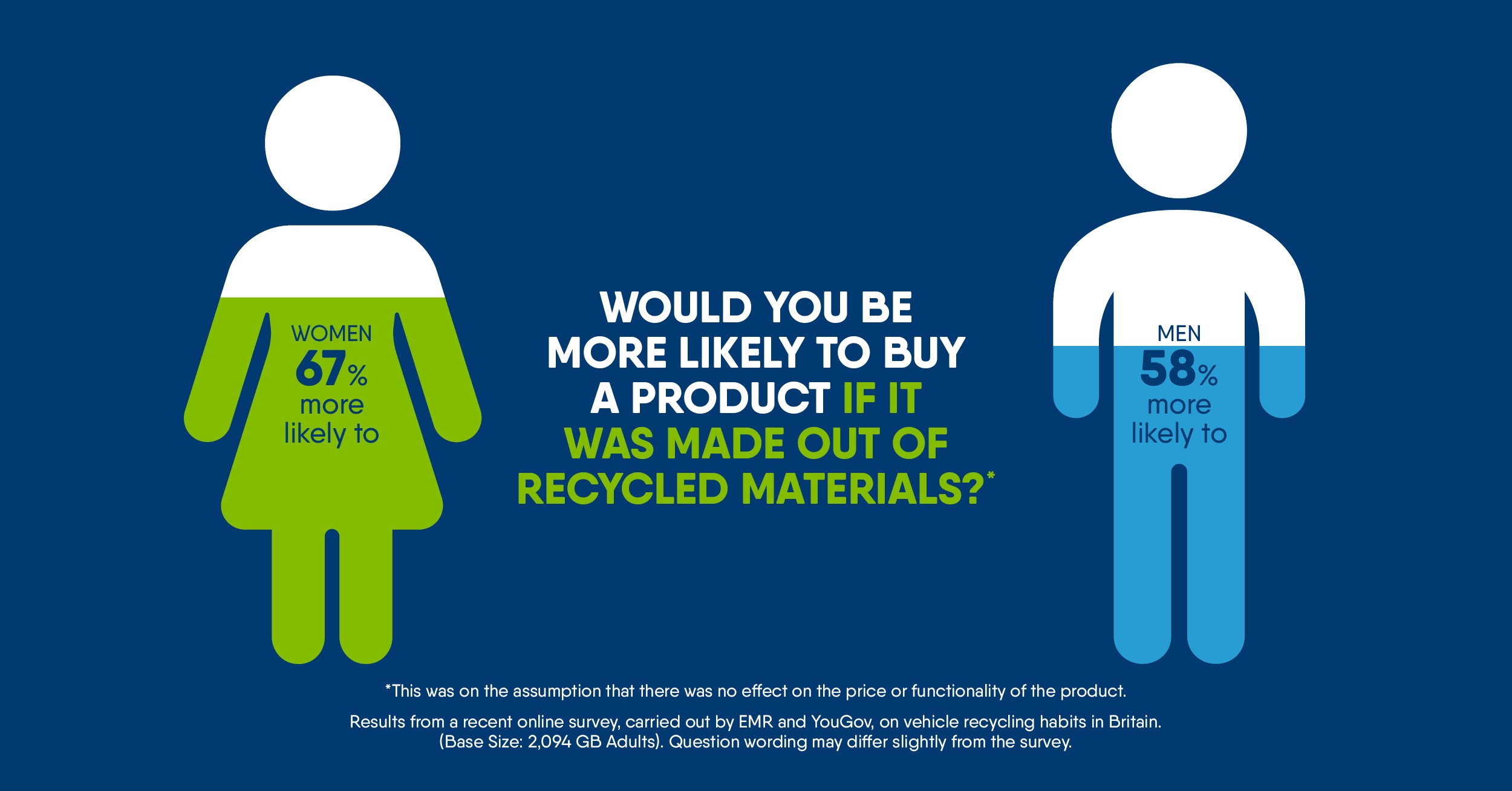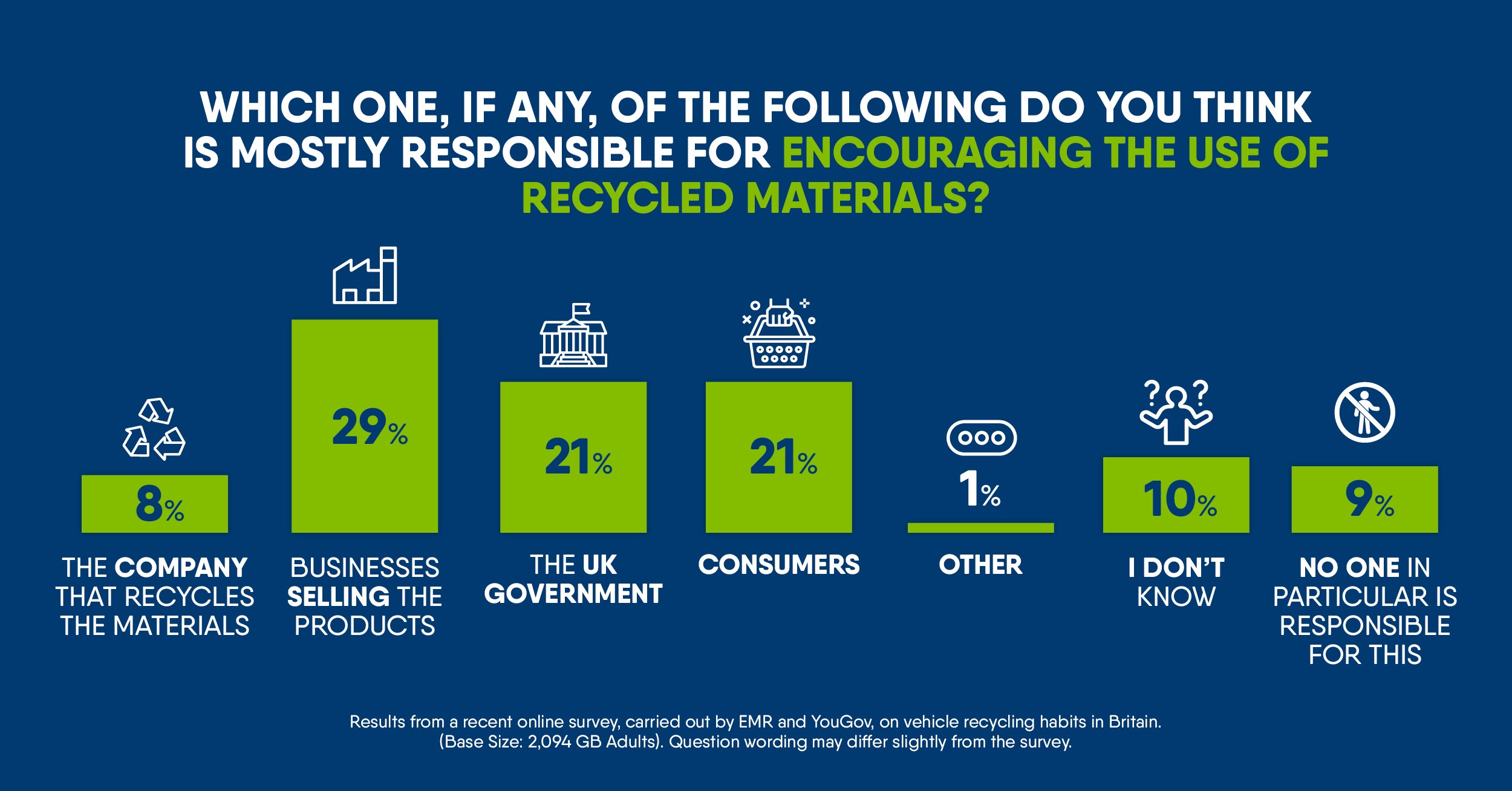CHOOSE
A DIFFERENT TERRITORY

At EMR, we are passionate about playing our role in creating a sustainable, circular economy, which helps the UK reach its net zero goal by 2040.
Yet, as our employees and partners know well, ‘the customer is always right’ and playing our role in combatting climate change means delivering the service consumers expect.
Earlier this month, EMR teamed up with polling firm YouGov to learn more about Great British consumers’ attitudes to recycling and buying recycled products. YouGov surveyed 2,094 online adults in Great Britain and the report presents a series of challenges and opportunities for metal recyclers such as EMR.
The good news is that shoppers are increasingly positive about buying products manufactured from recycled materials.
There is a little variation between respondents, with 67 percent of women more likely to purchase a product made from recycled materials, compared to 58 percent of men.1
And it appears the generations are united when it comes to their enthusiasm for recycled products. Among 18 to 24-year-olds, 65 percent of respondents were more likely to ‘buy recycled’ compared to 64 percent of those over the age of 55.
More concerningly, there seems to be a widespread misunderstanding of the positive impact that using recycled materials - rather than virgin materials - can have on our carbon impact.
Data on this was spread across the divide, from those who believe it cuts 81 to 90 percent of carbon emissions from a product’s manufacture (1 percent), to those who think that less carbon dioxide is produced when using virgin materials instead (6 percent). 43 percent didn’t feel that they knew enough to answer either way, choosing the “don’t know” option.
So, what’s the reality? Well, from our own work in this area we know that across our four main metal product types (Steel, Copper, Aluminium and Lead), the carbon emissions are between 74% and 89% less when compared to extracting and processing virgin materials for the same application. Similarly, with plastics, we have found that our plastic polymers generate carbon emissions that are between 75% and 86% of those emitted by the production of their virgin equivalents.

The survey also asked respondents who they saw as primarily responsible for encouraging the use of recycled materials. The survey group were split on this. 29 percent believe it is the responsibility of the business selling the product. 21 percent see it as a matter for the government and a further 21 percent believe it is a personal responsibility for all of us as the consumers.
There is an interesting, if minor, generational shift when it comes to personal responsibility versus the state. 27 percent of 18 to 24-year-olds think the government should be responsible for recycling, and 16 percent of this group think personal responsibility is more important. In the over 55s age group these positions are reversed with 26 percent thinking responsibility lies with people, and 18 percent thinking it is with the government.
The YouGov polling data indicates that the public understand that there’s a shared responsibility for manufacturers, consumers, government and recyclers like EMR to reach net zero carbon emissions and build a more sustainable economy.
And with consumers showing their enthusiasm for buying recycled products, EMR will continue to support them in fulfilling their sustainable aspirations.
1 This was on the assumption that there was no effect on the price or functionality of the product.